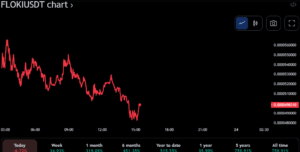SNEAK PEEK
- Crypto.com uses internal teams for proprietary trading and market-making.
- Executives allegedly denied involvement in internal trading operations.
- Regulatory scrutiny increases amid potential conflicts of interest.
As one of the leading cryptocurrency marketplaces globally, Singapore-based Crypto.com’s operations have been thrust into the limelight. The exchange employs internal proprietary trading and market-making teams to trade tokens for profit in a potentially controversial move. Significantly, this development signals possible conflicts of interest in the swiftly evolving digital asset sector.
While exchanges typically facilitate trades between buyers and sellers at the most competitive, transparent prices, Crypto.com has a different approach. Hence, it engages in proprietary trading and market-making typically executed by independent firms. These revelations have not been common knowledge since Crypto.com’s inception in 2016.
Interestingly, Crypto.com’s executives reportedly issued fervent denials to external trading houses of any involvement in internal trading. Moreover, employees were allegedly instructed to deny the existence of an internal market-making operation. However, Crypto.com staunchly refutes these allegations, asserting that no employees were directed to misinform market participants.
Despite the controversy, Crypto.com defends its strategy, declaring its practices non-controversial and standard across the platform. Besides, they maintain an internal market to ensure a level playing field for all participants. As a result, this has improved order book liquidity, resulting in a more efficient market.
Additionally, the exchange has a proprietary trading desk aiming to profit, with the market-making desk striving to enhance venue liquidity. This dual approach seeks to maintain risk neutrality, especially concerning the transactions on its retail trader application.
Consequently, Crypto.com’s practices have been scrutinized, particularly after the SEC clampdown on similar activities at other digital asset exchanges. The SEC recently slapped Binance, the world’s largest crypto exchange, with 13 charges, alleging manipulative trading practices.
Nonetheless, Crypto.com remains unfazed by these regulatory pressures. The company reiterates that it does not rely on proprietary trading as a revenue source, emphasizing fair treatment of all platform participants. With the stakes ever-rising, the Crypto.com saga is worth watching as the crypto industry matures and regulators increase their oversight.
- SEO Powered Content & PR Distribution. Get Amplified Today.
- PlatoData.Network Vertical Generative Ai. Empower Yourself. Access Here.
- PlatoAiStream. Web3 Intelligence. Knowledge Amplified. Access Here.
- PlatoESG. Automotive / EVs, Carbon, CleanTech, Energy, Environment, Solar, Waste Management. Access Here.
- PlatoHealth. Biotech and Clinical Trials Intelligence. Access Here.
- ChartPrime. Elevate your Trading Game with ChartPrime. Access Here.
- BlockOffsets. Modernizing Environmental Offset Ownership. Access Here.
- Source: https://investorbites.com/crypto-coms-internal-trading-teams-raise-eyebrows/
- :has
- :is
- :not
- 13
- 2016
- 22
- 25
- a
- across
- activities
- After
- Aiming
- All
- Allegations
- allegedly
- Amid
- an
- and
- any
- Application
- approach
- AS
- Asserting
- asset
- At
- been
- besides
- between
- binance
- book
- buyers
- by
- charges
- clampdown
- COM
- Common
- company
- competitive
- conflicts
- content
- controversial
- controversy
- crypto
- crypto exchange
- Crypto Industry
- Crypto.com
- cryptocurrency
- denied
- desk
- detailed
- Development
- different
- digital
- Digital Asset
- does
- efficient
- emphasizing
- employees
- engages
- enhance
- ensure
- especially
- evolving
- exchange
- Exchange News
- Exchanges
- executed
- executives
- existence
- external
- facilitate
- fair
- field
- firms
- For
- FT
- Globally
- Have
- hence
- houses
- However
- HTTPS
- image
- improved
- in
- inception
- Increase
- Increases
- independent
- industry
- interest
- internal
- into
- investigation
- investor
- involvement
- Issued
- IT
- ITS
- knowledge
- largest
- leading
- Level
- limelight
- Liquidity
- maintain
- Market
- Market News
- market-making
- marketplaces
- matures
- max-width
- more
- more efficient
- Moreover
- most
- move
- news
- no
- of
- on
- ONE
- operation
- Operations
- order
- Other
- Oversight
- participants
- particularly
- platform
- plato
- Plato Data Intelligence
- PlatoData
- playing
- possible
- potential
- potentially
- practices
- pressures
- Prices
- Profit
- proprietary
- raise
- recently
- Regulators
- regulatory
- rely
- remains
- result
- resulting
- retail
- revenue
- Risk
- s
- saga
- scrutiny
- SEC
- sector
- Seeks
- Sellers
- signals
- significantly
- similar
- since
- Source
- standard
- Strategy
- swiftly
- teams
- that
- The
- their
- These
- they
- this
- thrust
- to
- Tokens
- trade
- trader
- trades
- Trading
- Transactions
- transparent
- treatment
- typically
- unFaZed
- uses
- Venue
- watching
- were
- What
- What is
- with
- world’s
- worth
- zephyrnet














